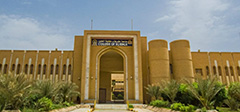Abstract
QR codes have become ubiquitous across several industries, including e-commerce, education, and healthcare. In the healthcare sector, QR codes are increasingly used to relay essential information regarding medical products, patient history, and healthcare education. In addition, QR codes have proven to help secure and preserve patient records during transmissions. This paper aims to develop and analyze the implementation of QR code technology for healthcare appli-cations. The proposed approach involves generating a unique QR code for each patient's information, facilitating data transmission between nodes such as hospitals. With its small size, the QR code provides a simple solution to transfer patient records, reducing internet capacity requirements and minimizing latency. The proposed system utilizes advanced techniques such as Diffie Hellman and logistic map for key generation and distribution, hash algorithm and Lorenz equation for key mask generation, the salting algorithm for data integrity, DNA encoding, and Huffman Algorithm for data coding. The proposed system's usability was tested with 366 patient records, and the results indicate that 99.76% of data was saved with a compression ratio of 416.8 for each patient record. Moreover, the comparative analysis demon-strated that the proposed strategy outperforms other data capacity, security, and integrity methods. Overall, the proposed system can revolutionize data transmission and security in the healthcare sector, ensuring the safety and confidentiality of patient records.
Recommended Citation
Abdul-Jabbar, Safa S. and Farhan, Alaa k.
(2023)
"Secure QR-Code Generation in Healthcare,"
Karbala International Journal of Modern Science: Vol. 9
:
Iss.
2
, Article 14.
Available at:
https://doi.org/10.33640/2405-609X.3294
Creative Commons License

This work is licensed under a Creative Commons Attribution-Noncommercial-No Derivative Works 4.0 License.




